“Artificial Intelligence and The Singularity” – Futurist Conference, September 20, from 9:30 am – 5:00 pm at Piedmont Veterans Hall, 401 Highland Avenue, in Piedmont, California.
Tickets are available at EventBrite. Cost is $20 – $35.
The event is co-produced by Peter Voss of AGI Innovation Inc (bio below), Anya Petrova (FuturismX), and Hank Pellissier of Brighter Brains Institute (bio below).
 Lead Sponsor – AGI Innovations Inc (agi3) was founded in August 2013 with the long-term goal of developing and commercializing the next generation of intelligence engines based on artificial general intelligence (AGI) theory.
Lead Sponsor – AGI Innovations Inc (agi3) was founded in August 2013 with the long-term goal of developing and commercializing the next generation of intelligence engines based on artificial general intelligence (AGI) theory.
Secondary Sponsor: The Institute for Ethics and Emerging Technology. IEET.org is a nonprofit think tank which promotes ideas about how technological progress can increase freedom, happiness, and human flourishing in democratic societies.
SPEAKERS
Peter Voss (Keynote Speaker) is an entrepreneur with a background in electronics, computer systems, business and technical software, as well as management. He has a keen interest in cognitive science and the inter-relationship between philosophy, psychology, ethics and computer science. Since the early 90’s he has been researching and developing AGI (artificial general intelligence), and in 2001 started Adaptive A.I. Inc., with the express goal of developing a human-level general-purpose AI engine. In addition Peter founded Smart Action Company, which offers an intelligent call automation solution based on a first-generation AGI engine. He considers himself an Objectivist and Extropian, and is actively involved in futurism, free-market ideas, and extreme life-extension. He is the Founder and CEO, AGI Innovations Inc, Founder and Chairman, Adaptive A.I., Inc. and Founder and Chief Scientist, Smart Action Company, LLC.
Monica Anderson is the CTO of Sensai Corporation and founder of Syntience Inc., an AI research company. She has 20+ years of experience of industrial grade classical AI with a language processing emphasis and has been working with Deep Learning, Understanding Machines, Artificial Intuition, and Model Free Methods since 2001. For more about her theories about AI, see http://syntience.com/links ; several videos of presentations by her and others are available at http://videos.syntience.com.
She is famous for soundbites like “If your AGI contains more than 10,000 lines of code then you are doing it wrong” and “AI is the ability in a computer to easily do that which is easy for humans.” For this conference, Monica says, “Most of what I have to say is available in the top two PDFs listed at http://syntience.com/links especially the Unfriendly AI Problem Solved paper. My messages are “We’ve been trying to solve the wrong problem for 60 years” and “All intelligences are fallible, so we can always pull the plug on them when they make their first mistake”.
Gary Marcus is a professor of cognitive science at New York University, where he directs the Center for Language and Music, and studies language, music, cognitive development, and evolution. He is also a computer scientist, a programmer, an AI researcher and the best-selling author of Guitar Zero and Kluge: The Haphazard Construction of the Human Mind (New York Times Editors’ Choice pick). His numerous essays for The New Yorker include Ray Kurzweil’s Dubious New Theory of Mind, What Comes After the Turing Test?, Hyping Artificial Intelligence, Yet Again, and What Facebook Wants With Artificial Intelligence.
He was a visiting cognitive scientist at the Allen Institute for Artificial Intelligence and he is co-editor of the forthcoming book “The Future of the Brain.”
Architect Fred Stitt founded the San Francisco Institute of Architecture in 1990, to provide a new kind of architectural education, to encourage innovation and visionary expression, to advance education in architectural technology and management, and to make a total commitment to green building and sustainable design. Fred taught at UC Berkeley and spent many years studying and documenting problems and solutions in architectural education. Prior to that, he had research on all aspects of architectural practice. Major publishers including McGraw-Hill, Van Nostrand, and Arts & Architecture Press, have published 15 of Fred’s architecture books. Books by Fred A. Stitt His first textbook on ecological design — the Ecological Design Handbook. Published by McGraw-Hill, and recently translated into Chinese, is used at universities around the world. His next book, Frank Lloyd Wright Green, describes how Frank Lloyd Wright invented most of what we know as today’s green building design methods and technology.
Fred Stitt and SFIA’s distinguished faculty are now applying extended problem seeking and creative problem solving to every aspect of contemporary sustainable architecture. In pursuit of this work, SFIA created the first major national and international green building conferences (the Eco Wave series) and has held recurring workshops for design professionals and educators in over 50 cities across the U.S.
In 1997, SFIA became a Registered Provider for the American Institute of Architects, and has enrolled over 5,000 architects and engineers in it’s continuing education programs. In addition, SFIA has provided low-cost distance learning programs to architecture students and professionals on every continent around the world. With over 2,000 students, is today the oldest and largest professional green building educational institution in the world.
Among other awards, Fred received the 2009 Award for his “Universal Green” Education Initiative from the Sustainable Buildings Industry Council at a Congressional Briefing and Award Ceremony in Washington DC. Other low-cost international education initiatives are currently in the planning stages.
Jamais Cascio is a Senior Fellow of the Institute for Ethics and Emerging Technology. Selected by Foreign Policy magazine as one of the Top 100 Global Thinkers of 2009, Cascio writes about the intersection of emerging technologies, environmental dilemmas, and cultural transformation, specializing in the design and creation of plausible scenarios of the future. His work focuses on the importance of long-term, systemic thinking, emphasizing the power of openness, transparency and flexibility as catalysts for building a more resilient society.Cascio’s work appears in publications as diverse as Metropolis, the Atlantic Monthly, The Wall Street Journal, and Foreign Policy. He was featured in National Geographic Television’s SIX DEGREES, its 2008 documentary on the effects of global warming, and on History Channel’s SCIENCE IMPOSSIBLE, its 2009 series on emerging technologies. Cascio has spoken about future possibilities around the world, at venues including South by Southwest Interactive in Austin, Texas, Mobile Monday in Amsterdam, the Singularity Summit in San Francisco, and the TED 2006 conference, “The Future We Will Create,” in Monterey, California.
Cascio has worked in the field of scenario development for over a decade, and is currently a Research Fellow at the Institute for the Future. After several years as technology specialist at scenario planning pioneer Global Business Network, he went on to craft a wide array of scenarios on topics including energy (for an industry think tank), nuclear proliferation (for a political research non-profit), and sustainable development (for a multi-client project). He also serves as the Director of Impacts Analysis for the Center for Responsible Nanotechnology.
In 2003, Cascio co-founded WorldChanging.com, the award-winning website dedicated to finding and calling attention to models, tools and ideas for building a “bright green” future. In his time at WorldChanging, he wrote the plurality of the site’s content, covering topics including urban design, climate science, renewable energy, open source models, emerging technologies, social networks, “leapfrog” global development, and much more. In March, 2006, he started Open the Future as his online home.
Cascio has also applied his scenario development skills in the entertainment industry, advising multiple television and film projects, and designing several well-received science fiction game settings, including Transhuman Space: Broken Dreams (speculating on the future of the developing world) and Transhuman Space: Toxic Memes (examining future popular culture and political movements). Cascio lives outside of San Francisco, California, with his wife, two cats, four Macs, and the inevitable hybrid cars. He says, “my tentative title for this conference is “The Ideology of the Off Switch.” I’d like to talk a bit about the potentially fuzzy boundary between “object” and “person” in a world of persistent digital personalities.”
Bestselling visionary author Zoltan Istvan, an American-Hungarian, began a solo, multi-year sailing journey around the world at the age of 21. His main cargo was 500 handpicked books, mostly classics. He’s explored over 100 countries—many as a journalist for the National Geographic Channel—writing, filming, and appearing in dozens of television stories, articles, and webcasts. His work has also been featured by The New York Times Syndicate, Outside, San Francisco Chronicle, BBC Radio, NBC, ABC, CBS, FOX, Animal Planet, and the Travel Channel. In addition to his award-winning coverage of the war in Kashmir, he gained worldwide attention for pioneering and popularizing the extreme sport of volcano boarding. Zoltan later became a director for the international conservation group WildAid, leading armed patrol units to stop the billion-dollar illegal wildlife trade in Southeast Asia. Back in America, he started various successful businesses, from real estate development to filmmaking to viticulture, joining them under ZI Ventures. He is a philosophy and religious studies graduate of Columbia University and resides in San Francisco with his daughter and physician wife.
Zoltan recently published The Transhumanist Wager, a fictional thriller describing apatheist Jethro Knights and his unwavering quest for immortality via science and technology. The novel was recently a #1 bestseller in both Philosophy and Sci-Fi Visionary & Metaphysical on Amazon. Zoltan also blogs for Psychology Today and The Huffington Post. At this conference, Zoltan will discuss how “the morality of AI will be different from our morality—and the kind of philosophy and metaphysics that would go into building this type of machine morality. I also will be discussing ramifications of downloading our consciousness into machines, and how that will be quite different than our current mammalian perspective.”
Nicole Sallak Anderson is a Computer Science graduate from Purdue University. After graduation, she developed encryption and network security software, which inspired both the storyline and the science behind her transhumanist novel, eHuman Dawn (Story Merchant Press, 2013.) She currently lives with her husband and two teenaged sons on two acres in the Santa Cruz mountains of Northern California, where she indulges in a variety of homesteading hobbies, from beekeeping and raising chickens and goats, to gardening, canning, spinning, and knitting. She blogs and speaks on singularity, transhumanism, internet privacy, data manipulation and human consciousness. Follow her at www.ehumandawn.blogspot.com or on Twitter @NSallakAnderson.
Josh Bacigalupi’s vocation is to understand how people and their environments maintain vitality and thrive on this planet. As an undergraduate, he studied environmental science and physical chemistry at UCSB. Not convinced that a traditional science career would be the best path to understand how complex biological systems operate within their environments, he earned a MArch from the University of Colorado, Denver, and practiced design in Finland and Italy. Upon his return, he was Head Designer for a $7.5 million municipal police station in Denver that earned AIA and industry design awards. This design success and the human turmoil of 9/11 inspired him to enter the World Trade Center Memorial competition. At its core his design entry placed an interactive art piece whose behavior was reminiscent of a sentient agent. This technical design strategy, intending to help heal human discord, re-awakened his former scientific pursuits. Integrating his science and design practices, Josh founded the Institute for Augmenting Minds, IforAM, to design what he calls Synthetic Cognition. After 10 years of focused research and design, this led to a rigorous theory of autonomous Augmentation (formerly “Refinement”) and a detailed research proposal (abstract) intended to implement and empirically test a system capable of Augmenting itself autonomously in its indeterminate open system. This project led to work with Professor Terrance Deacon at UC Berkeley on semiotics and abiogenesis; in addition, the theory of autonomous Augmentation contributes to his current science museum work as Architectural Design lead at the Studio for Public Spaces, Exploratorium.
Scott Jackisch – is a blogger at the Oakland Futurist, where he reports on conferences, symposiums, and salons. His self-description is: “I live in Oakland, CA with my girlfriend of many years, Gretchen. I grew up outside of Buffalo, NY, and also lived briefly in New Orleans. I have worked with computers since 1999 and am currently exploring a new avocation as a writer. My interest in futurism started in my youth reading the science fiction Isaac Asimov and Robert Heinlein. Later I admired William Gibson and Neal Stephenson, and Verner Vinge, Charles Stross, and Daniel Suarez are some of my present favorite authors. I got into cognitive science after attending Monica Anderson’s AI Meetup, and then Dana Ream’s Cognitive Science Reading Group. I am very interested in enactivism and embodied cognition. I’m an active Meetup.com participant and I host my own Futurist Meetup. Other groups I am part of are Quantified Self and the Long Now. I have also done work with startups and I’m interested in the Silicon Valley entrepreneurial scene.”
Dr. Pavel Luksha – Leader of the Russian think-and-do tank Reengineering Futures Group (refuture.me), professor of SKOLKOVO Moscow School of Management, co-founder of Russian Neuroweb Group (www.globalneuroweb.org) and Russian R&D Directors Club. Program Director of Russian Foresight Fleet, the largest future-awareness educaton project in the world.
Hank Pellissier is director of Brighter Brains Institute, a SF Bay Area think tank. He was Managing Director of Institute for Ethics in Emerging Technology (IEET) in 2012. He’s the author of Brighter Brains – 225 ways to injure or elevate intelligence, and he has written for GreatSchools.org, New York Times (San Francisco edition), Salon.com, SFGate.com, IEET, H+ Magazine, World Future Society, SF Bay Guardian, and other publications.
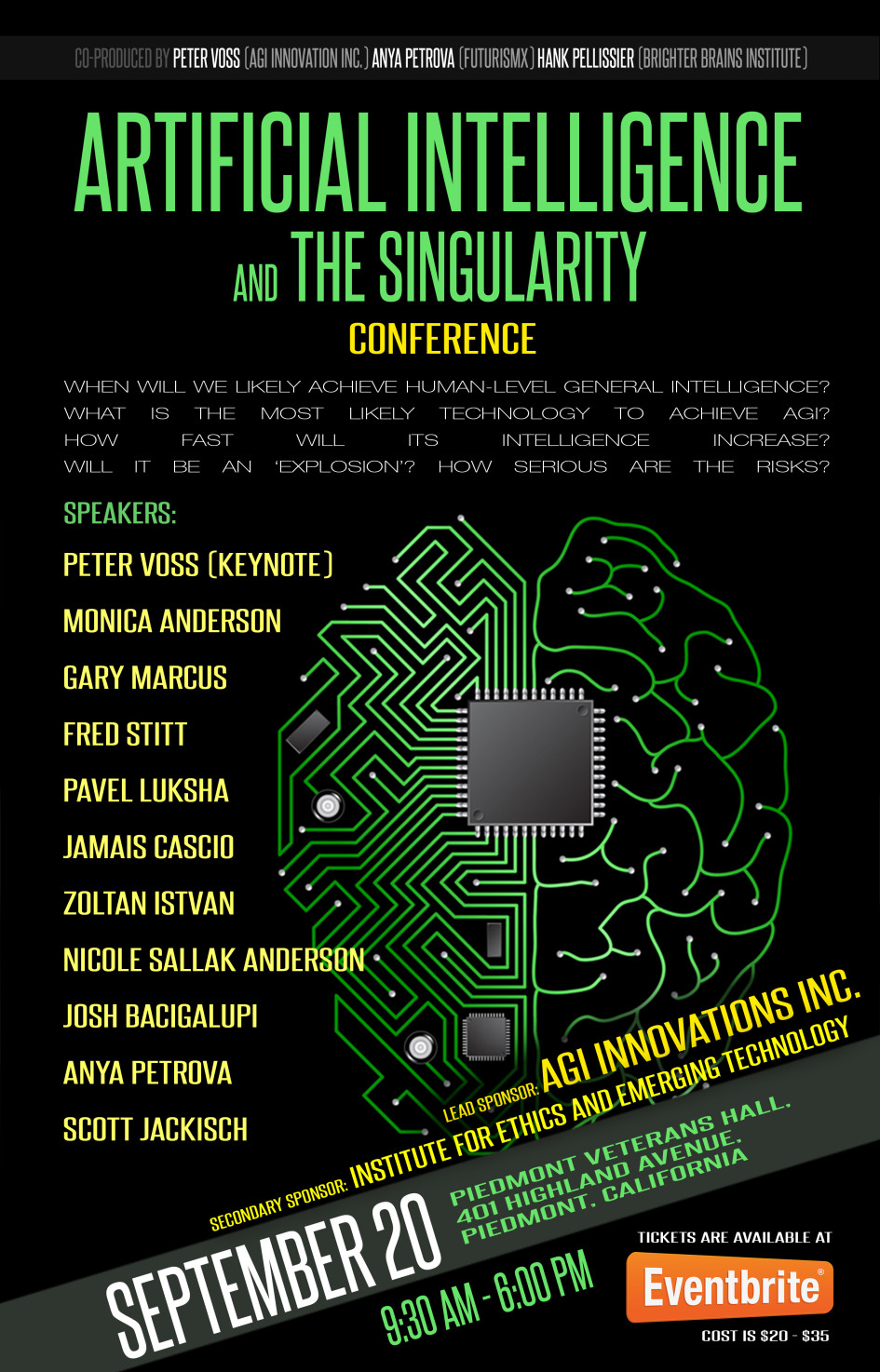

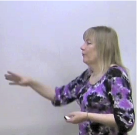
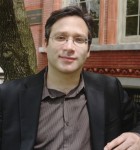
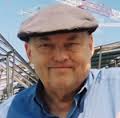

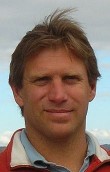

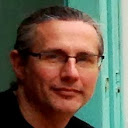

September 2, 2019 at 6:28 pm
In Sweden they do it from the brain
https://fritanke.se/bocker/tankens-maskinrum/